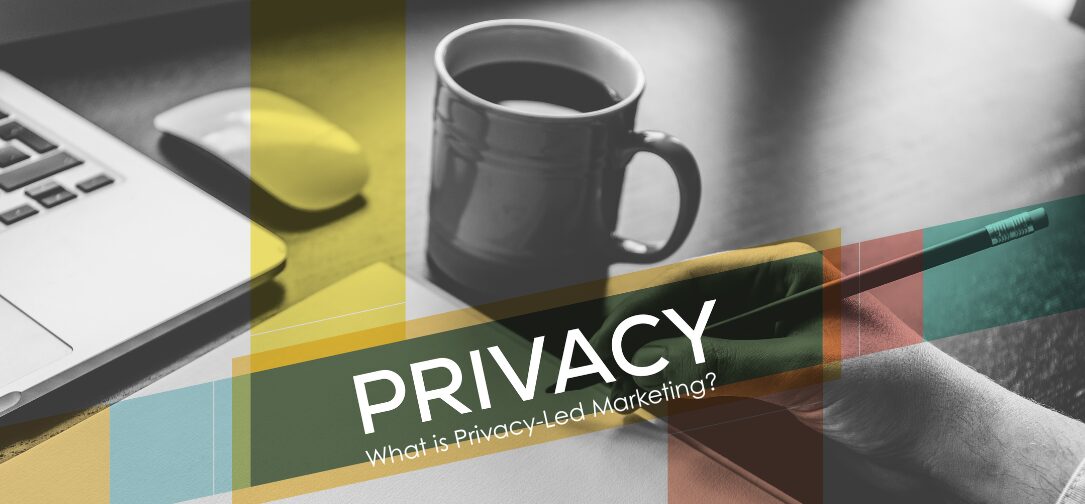Most businesses operate online today. Even if the core of a company is still a brick-and-mortar storefront, it still needs to create an online presence to capture the attention of potential customers who may be searching for businesses like theirs online.
However, for businesses to operate successfully online, they need to establish something called “digital trust” with their users. An increasing number of local, national, and foreign governments are subjecting websites to stricter regulatory scrutiny following a surge in data breaches in recent years.
People have numerous legal protections and rights regarding how businesses and website operators use their personal and online data. Because of this, companies are now encouraged to engage in what is known as “privacy-led marketing.”
What is Privacy-Led Marketing?
Privacy-led marketing (also known as privacy-first marketing) is an advertising and brand-building technique that prioritizes user privacy and data consent to build trust with prospective customers.
In the past, businesses would collect and store user information without asking for consent or permission to do so. But now, in 2025, numerous data privacy laws require businesses to receive informed consent from users before gathering information about them, such as their browsing behavior and preferences.
Privacy-led marketing creates a sense of transparency between businesses and users online. Users will appreciate the option to choose how a company gathers, uses, and secures their data. That is how businesses build trust and a stronger relationship with users who may now turn into future customers.
What is Digital Trust?
Digital trust refers to a user’s level of confidence and trust in a company’s ability to protect their sensitive and private information.
According to the 2024 Edelman Trust Barometer, approximately 63% of consumers will buy from a business or brand they fully trust, even if its products or services are more expensive. It also shows that 55% of consumers will remain loyal to a business they fully trust, regardless of whether the brand receives negative feedback or accusations of wrongdoing from others.
As more consumers become aware of their privacy rights, businesses must recognize the importance of providing transparency to users to establish digital trust. Otherwise, they could face legal, ethical, and financial backlash.
How Businesses Can Leverage the State of Digital Trust Report
Usercentrics published the State of Digital Trust Report in 2025 to offer insights into how digital trust impacts consumer behavior when consumers visit websites online, particularly for the businesses and brands associated with them. It contains relevant details that companies need to know when operating online to ensure they are actively meeting consumer expectations when it comes to data transparency and privacy.
By leveraging the information contained in the digital trust report, businesses can turn data regulatory compliance into a new opportunity to build stronger relationships with their targeted consumers.
Below are three ways in which businesses can leverage the State of Digital Trust Report to achieve this objective:
1) Learn and Understand Consumer Expectations
The Digital Trust Report provides clear insight into consumer data privacy expectations in 2025. According to the report’s statistics, 44% of consumers say they would trust a brand more if it is transparent about data use. Another 43% say they would trust a brand with strong security guarantees, and 41% say they would trust a brand with the ability to limit or control data sharing capabilities.
Businesses can use this information to create or improve their data collection policies to align with current consumer requirements and expectations. If some users choose not to consent to data collection, they can still access most features of the websites, the same as anyone else. So, businesses certainly won’t lose any potential sales if consumers refuse to consent to a website’s data collection.
2) Educate Consumers About Privacy Management
The Digital Trust Report shows that approximately 77% of global consumers don’t fully understand how their data is being collected and used by businesses. In fact, 40% of global consumers don’t even know what their privacy rights are. Around 25% are skeptical that regulators will take action to protect them when their privacy rights are violated.
Businesses can use this data as an opportunity to educate potential consumers about their privacy management rights. What better way for a brand to build digital trust than by informing consumers about their specific data privacy rights? Businesses are not required to provide such education, so if they do, it will only establish more trust with consumers.
3) An Action Plan for Privacy-Led Marketing and Growth
Perhaps the best feature of the Digital Trust Report is the complete action plan it provides to businesses and marketers to improve their privacy-led growth. The full checklist of the steps on how to start includes the following:
- Communicate clearly with users about their data rights and how this transparency is beneficial to them.
- Design a custom data consent banner as if you’re designing a landing page for consumers. If you make privacy interactive and engaging rather than passive and hidden, it will turn more clicks into conversations on your website.
- Utilize the power of data transparency to separate your brand from other competing brands in the market. If your business becomes the market leader in transparency, it will earn the most digital trust from your target audience.
- Many consumers care about their privacy, but they don’t understand how to access privacy management. Ensure that users can access well-designed data consent banners and data management tools that go beyond merely satisfying your company’s legal obligations. Become the champion of educating people about privacy access and management so that they can feel confident in the choices they make regarding their privacy.
Cookiebot by Usercentrics: The Solution for Cookie Consent
Cookiebot™ is an advanced consent management platform designed for online businesses to request data collection consent from users automatically. It is the perfect way to build digital trust with users by leveraging the information available in the State of Digital Trust Report to ensure you’re meeting all their expectations.
Cookiebot™ also meets strict regulatory requirements, such as CCPA, GDPR, and Google Consent Mode v2, to comply with local, national, and international laws. By subscribing to the Cookiebot CMP (Consent Management Platform), you will be making a strategic move toward implementing privacy-led marketing into your website to build long-term digital trust.
As a result, you can expect to receive more loyal customer relationships who appreciate your brand for its transparency regarding data management and privacy.



































